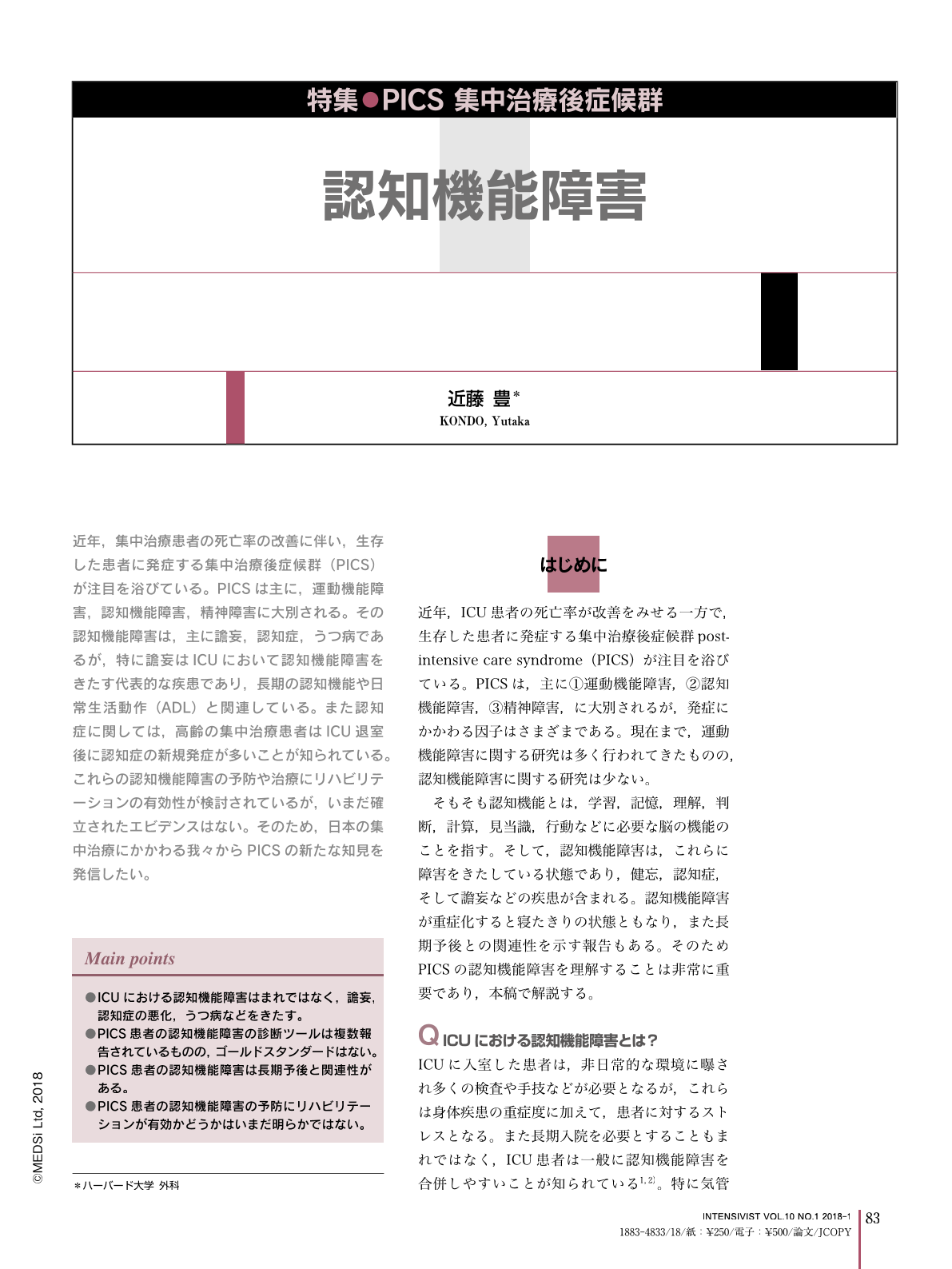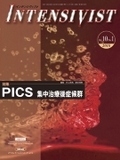Japanese
English
- 有料閲覧
- Abstract 文献概要
- 1ページ目 Look Inside
- 参考文献 Reference
近年,集中治療患者の死亡率の改善に伴い,生存した患者に発症する集中治療後症候群(PICS)が注目を浴びている。PICSは主に,運動機能障害,認知機能障害,精神障害に大別される。その認知機能障害は,主に譫妄,認知症,うつ病であるが,特に譫妄はICUにおいて認知機能障害をきたす代表的な疾患であり,長期の認知機能や日常生活動作(ADL)と関連している。また認知症に関しては,高齢の集中治療患者はICU退室後に認知症の新規発症が多いことが知られている。これらの認知機能障害の予防や治療にリハビリテーションの有効性が検討されているが,いまだ確立されたエビデンスはない。そのため,日本の集中治療にかかわる我々からPICSの新たな知見を発信したい。
Main points
●ICUにおける認知機能障害はまれではなく,譫妄,認知症の悪化,うつ病などをきたす。
●PICS患者の認知機能障害の診断ツールは複数報告されているものの,ゴールドスタンダードはない。
●PICS患者の認知機能障害は長期予後と関連性がある。
●PICS患者の認知機能障害の予防にリハビリテーションが有効かどうかはいまだ明らかではない。
Postintensive care syndrome (PICS) is a newly emerging entity, which develops in survivors of intensive care units (ICUs). The number of patients suffering PICS is increasing along with decreased mortality of critically ill patients. The three major components of PICS are physical dysfunction, cognitive dysfunction, and mental illness. Delirium, dementia, and depression can present with cognitive dysfunction in critically ill patients in the ICU and this cognitive dysfunction is associated with a poor long-term prognosis and decreased ability to perform activities of daily living. Geriatric ICU survivors may have a higher incidence of new onset dementia. Currently, there are no established preventive or therapeutic interventions for cognitive dysfunction, while early rehabilitation has been assessed. New evidence of cognitive dysfunction in PICS is expected from Japan.

Copyright © 2018, MEDICAL SCIENCES INTERNATIONAL, LTD. All rights reserved.


